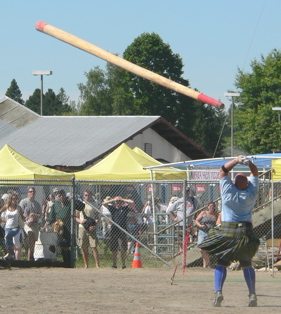NPC interacting with other NPCs don't use rules at all. Any rules for NPCs are there to aid the DM in their interactions with PCs.
There is no D&D economy, as Man in the Funny Hat has endeavoured to explain to you. And if there was it certainly wouldn't depend on the PHB Profession skill.
And as
I have endeavored to explain to everyone:
The question being asked in the OP was "How does the D&D economy work?"
There are precisely two answers to that question:
1) "You take the rules D&D has on the subject, the Profession rules and WBL rules, and extrapolate an economy from that, because only the D&D rules take into account the differences between D&D and the real world."
OR
2) "You hand-wave everything and create an economy that you think works better, because the D&D rules aren't detailed enough for your liking and your own campaign setting doesn't fit the generic D&D assumptions."
Answer 1 answers the question "How do
D&D economics work?" while answer 2 says "Actually, they don't" and avoids the question, which is a meaningless answer because (A) it doesn't help anyone who wants to take a look at D&D economics from an in-game perspective like the OP presumably does and (B)
we already know D&D economics don't work according to real-world economics principles. Saying "NPCs don't follow the PC rules" is answer 2. Saying "That can't simulate medieval European economics" is answer 2. Saying "The WotC designers know nothing about economics, demographics, etc." is very true, and I agree wholeheartedly, but it's still answer 2.
Creating your own economy from scratch is a better approach, as it can be customized to your world and your style of play, but doing that
doesn't answer the question.
I don't use them because they're pretty crap, and don't fit any world I'd like to build. I typically use bottom-up demographics based on 1% of the population being PC-classed, 50% and half number each higher level. I don't tend to use the Commoner class since I don't see why a well-fed farmer would have a lower hit die than a scrawny scribe. In fact I tend to use hit dice for non-classed NPCs which appopriately reflect their combat ability. I'll also detail the economics of an area as appropriate for the campaign - and I'll plug in the PHB Profession skill where it fits into the standard-of-living table, ie it gives a middle class income to skilled professionals.
This is very valid position to take, and in fact is one I usually take. The only NPC classes I use are the adept, the magewright, and a "professional" class which is basically a combined aristocrat//adept; most NPCs in my worlds fall in the level 1-5 range where level 1 is teenagers and younger and level 5 is important or notable "lesser" NPCs, where "named" NPCs might be in the 6-8 range. However, you and I both
admit that we're not using the D&D demographics rules because we don't like the way they work and replace them with something else, we're not claiming that our own rules generalize to "the D&D demographics rules."
The problem with trying to figure out D&D economics is that everyone *says* it's a pseudomedieval setting, but most campaigns and default settings don't actually have much in common with medieval Europe. A typical setting has elements of the Roman Empire (especially the Common language), the Renaissance, and the modern world. Yeah, you'll come across knights, but feudalism isn't common. So it's not surprising there isn't a logical economy to the game as it stands.
Yes, thank you, that's exactly what I was saying before we sidetracked into Profession minutiae.
If you want an actually functional economy, you need to add it in, as with the book Whizbang Dustyboots linked to. If you just want a place for people to rest and sell stuff in between dungeon crawls, the base rules work just fine.
Again, you don't absolutely
need an external system, because on a personal level Profession is close enough for government work and on a societal level we already have prices for most things, though I definitely do support creating your own economy, as I mentioned above.
BTW the DMG hireling costs are a much better guide to NPC income than the PHB Profession skill. I'm surprised no one has mentioned them.
While they can be useful for on-the-spot prices, they're not all that helpful overall. For one, while the prices given are for long-term contracts, they don't describe what the NPC does when not hired by the PCs. Sure a clerk (for instance) makes 4 sp per day when hired for a specific task, but what about his day job? Second, those rules are somewhat contradictory. Porters, laborers, and maids make 1sp/day, the stated wage for untrained laborers, which works fine; however, a cook (definitely not untrained) makes the same wage, a mercenary expected to go into dangerous situations makes less than a teamster, and so forth.

